 | Print this article |
'And this mirror imaging is the most dangerous thing because it leads to tremendous misunderstandings.'
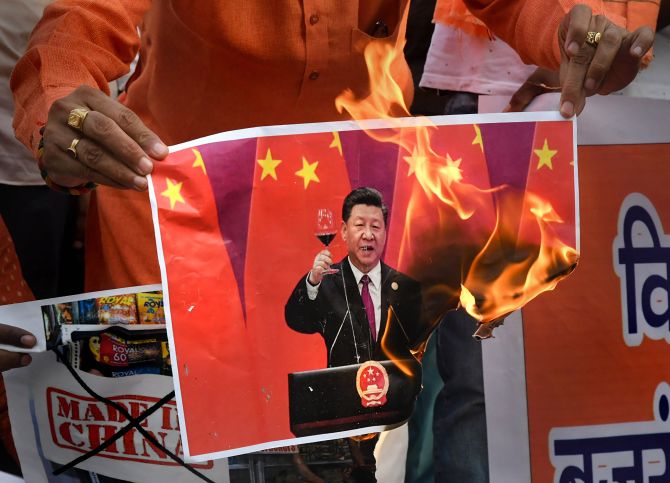
"China has a pattern of risk taking behaviour at times of domestic crisis," Shivshankar Menon, former national security adviser, former foreign secretary and former Indian ambassador to China, tells Rediff.com Senior Contributor Sheela Bhatt in the first part of an exclusive interview:
Did India read the border situation little incorrectly in early May?
Frankly, we cannot say what the reading was and what the actual situation is. We do not know enough about the situation because there are many stories, many leaks, many inspired stories, lots of guess work, the same satellite pictures are interpreted in opposite ways by different people.
So, I think we need to accept that there is a whole area here that we don't know about. We will probably find out in time, but today if you ask what is the actual situation on the boundary, it's very hard to say.
I don't think anyone outside official circles can give you the answer. Even in official circles very few people can give you an honest answer. So, once that (the factual ground situation) is established only then is it possible to say whether we misread the situation.
If you don't know the situation, how can you read or misread? I can only say that we have worked ourselves into a position -- both sides have -- and from the outside it looks to me like this because of what China has chosen to do which is different from what she did before.
We have worked ourselves into a position where there is certainly a crisis in the relationship.
But your experienced eyes can read between the lines of the interviews of Chinese Ambassador Sun Weidong and India's Ambassador in China, Vikram Misri.
My experience applies to what I know in the past. Today, you have contradictory statements. What I mean is, that you have areas where certainly there are different suggestions where the Chinese are now saying that the entire Galwan Valley is theirs. (It is) Not the truth because we have been there.
Secondly, what we know is that we are being prevented from patrolling certain areas which we have always patrolled in the past, in Galwan and in other places also.
Thirdly, we know that China did it first and then India built up forces all along the Line (Line of Actual Control) and not only in the Western sector, also in other places.
That, I think nobody has denied. Neither government has denied and it seems to be a fact. So, we have a crisis. That's why I say we have a crisis, not because of just one spot or another.
Frankly, unless you are looking at the intelligence and dealing with it on a day to day basis, I will not guess. Whatever I might have known in the past is not necessarily relevant today, because the whole point is that it seems to me that the Chinese behaviour has changed on the border because this is now happening across the Line in several places.
It is not just one intrusion in one place, not just a five or ten day event. It is not like the intrusion in Depsang as we had in 2013. This is something much bigger than what we faced in Doklam in 2017.
I'd be very careful about drawing big conclusions on the basis of what little we know. In these things it is best to go by the facts.
Right.
It is best to be very careful about what we say about this. You know there are lives involved here and we have already lost 20 lives on our side.
This is serious and you know it would be irresponsible for people to go on talking about this. This is not some game, this is a serious business between two serious countries with very large armies.
And so, I am very careful, therefore, in jumping to big conclusions and saying things about the situation on the ground.
We can talk about what the two countries think, what they should do, why are we in this position, all that is fine, but the actual situation on the ground, I think, there is far too much speculation and most of it is based on no knowledge whatsoever.
Why now? Is it because China sees India as a weak country fighting an economic downturn and a pandemic?
My own sense is that, you know, the pandemic has diminished all of us. China included. China will not admit it. It is not in their nature to say so, but the fact is it started there, it has hit them as well, their economy also is suffering and this is true of all the powers.
Some might come out of it quicker; some might be less, but the fact is that it has diminished all of us.
In that situation what we are seeing is an assertive China across the board. It is not only vis a vis India. It is tough on Hong Kong where despite the previous agreements, China has chosen to pass the national security law herself without consulting the Hong Kong institutions which gives her security control and presence within Hong Kong. This is diminishing Hong Kong's autonomy which she was permitted to maintain for fifty years.
China is flying military aircraft in Taiwanese air space, she is also sending submarine ships near Senkaku in the East China Sea which is disputed with Japan.
There is a pattern of Chinese behaviour of assertiveness in the last few months which, I think, is across the board. Therefore, I think what we are seeing is part of a larger pattern.
When China itself is deep in problems, why now? People tend to talk aggressively from a position of strength.
If you look at China's behaviour traditionally, it is an interesting thing. When China had a massive revolt in Tibet from 1959 onwards and a famine, when she was having a dispute with both the Soviet Union and the USA, that's when she went to war with India in 1962.
When you look at China's response to a crisis, she has been willing to take risks abroad. At times she was willing to enter Korea in the Korean War in 1950 when she had still not consolidated even the People's Republic of China, when she had internal enemies, when China was facing the most powerful country on earth.
So, China has a pattern of risk taking behaviour at times of domestic crisis.
I think the leadership probably finds it a useful device to unite people around it, and they have made use of this before.
In 1979 when they attacked Vietnam, it was when (Deng Xiaoping's economic) reform had barely started in December 1978. They attacked Vietnam in February 1979.
It is not necessary that we should judge Chinese behaviour by their actions and to make assumptions that 'Oh, the domestic economy might be in trouble, therefore they want to do this' and so on, I think that is not correct.
This is part of the problem. When we look at China, we expect China to behave the way we would.
China looks at us and expects us to behave the way China would!
And this mirror imaging is the most dangerous thing because it leads to tremendous misunderstandings.
'This Chinese behaviour we have not seen for a very long time.'
'This sort of build up on the border, this sort of Chinese behaviour, especially the aggression and brutality with which our people were attacked on the 15th of June, this is not something we have seen before.'
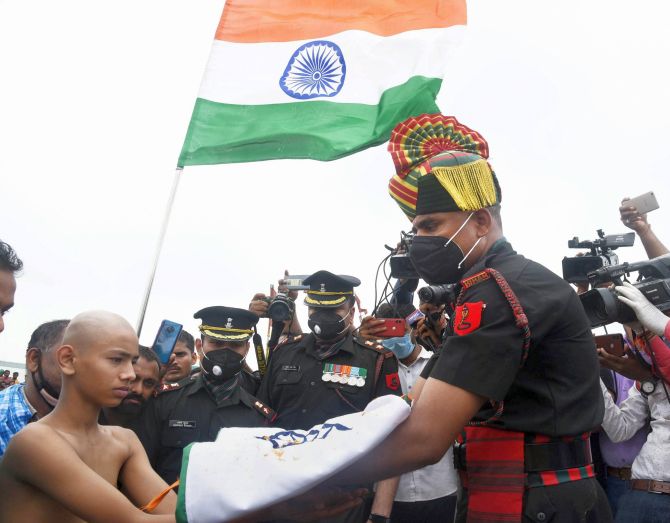
"I have absolute confidence that the Indian Army can deal with this, that's not the problem. The question is how do you then deal with it politically because this is more than just a military problem, this is diplomatic, political, it's a much broader challenge," Shivshankar Menon, former national security adviser, former foreign secretary and former Indian ambassador to China, tells Rediff.com Senior Contributor Sheela Bhatt in the second part of an eloquent interview.
Can we say that spirit behind the 1993 Agreement on the Maintenance of Peace and Tranquillity at the border has been dumped by China unilaterally?
Well, I think it is about more than the spirit, the agreement works when there are differences. It commits them to withdrawing and discussing it peacefully.
Now, as I said, we don't have full information, but from what I understand China has crossed the LAC (Line of Actual Control) in some places which she is actually required to respect under the 1993 agreement and all the subsequent agreements.
From what I understand, the military build ups are also contrary to the spirit of what these agreements convey, (what) the 1993, 1996, other agreements provide for.
So to build up a force on the border, to cross the LAC, this naturally casts into question China's commitment to the agreements. And that's something we will have to take into account in our own calculus when we decide what to do and how to deal with it.
Right now, I think we have started a process of negotiation, both military and diplomatic, and we will have to see where that goes.
I don't know what's being said in the negotiations, it sounds to me from the behaviour, as though, and by public statements that they have expanded their definition of their LAC by saying the entire Galwan Valley is on their side of their LAC, which it never was before.
But until we know what they are saying in the negotiation, I think it's dangerous right now to draw conclusions about the limits of their behaviour. But, we have to be prepared.
Do you think this stand-off will, eventually, fizzle out? What is the level of seriousness you see in this current situation?
This Chinese behaviour we have not seen for a very long time, 40 years, so this sort of build up on the border, this sort of pattern in Chinese behaviour and especially the aggression and brutality with which our people were attacked on the 15th of June, this is not something we have seen before.
So, I think we have to keep an open mind until we know why and how far they want to take this and that is something that I think frankly, you and I sitting on the outside cannot speculate about.
But I do think that this is serious and it has all the signs of being much more serious. And it is even more serious because it is a part of a broader Chinese behaviour, not just vis a vis us, but with other people as well.
You are telling me that we doesn't have all facts, but on the basis of many statements, do you think the People's Liberation army is sitting on Indian land in the Galwan Valley or around the Pangong Tso lake?
You know, from what we hear, it seems that they have crossed the LAC in some places.
But whether they are still across the LAC or have gone back today, yesterday, all that frankly none of us sitting on the outside have a way of knowing.
But from their behaviour and from their statements it does certainly seem as though they have expanded their definition of the LAC and therefore are beyond the LAC.

Do you see any pattern in the government's behaviour to not reveal certain facts? You have been in a similar position when the Depsang intrusion occurred in 2013.
Frankly, I can understand why the government is careful about releasing facts, especially when it is in the midst of a negotiation. It is trying to ascertain where and what and it is trying to restore the status quo ante.
But beyond a point, I think government silence or denial is not the right approach because ultimately you need to tell our people the truth.
To leave the people in the dark, your own people in the dark, actually runs the risk of allowing all kinds of speculation and for people to think terrible thoughts about the government and about China.
After all, this is the Government of India, they are representing us and our interest, and I think the people will have some right to know.
They don't need to know every single detail of everything, but they do need to know more than what we have seen so far.
It also works at the negotiation table to be able to say that 'Look, my people have a view and therefore I think some amount of strategic communication needs to be controlled and managed here.'
Let me share one perception. During Prime Minister Manmohan Singh's ten years in office, he was perceived as a peacemaker. You had a powerful position in his office for four years, 2010 to 2014.
Don't you think, Mr Menon, you then had a certain status quo-ist policy which did not at the end yield results to help India in such situations where China has a kind of a key to embarrass India anytime it wants like it has done now.
What about the final maps of all the borders?
It's not true that we don't have a map. We have a map that the Chinese gave us when we had officials talk, we have a map with Chinese version of the boundary.
They have a map which we gave them, which shows what India's boundaries are. And so, to say that there is no map, that's not true.
Secondly, what does the map prove? The discussion here is not about the boundaries. It is about the LAC, while we negotiate the boundary which is going on.
In the 1993 and 1996 agreements, we agreed that we would clarify the LAC. In 1996, we agreed actually on an exchange of maps. We started that process in 2002.
We exchanged maps of the LAC in the Middle Sector. When we exchanged maps of the LAC in the Western Sector, the Chinese pulled back and said they didn't want to go on with this exercise.
They used several reasons, but basically they didn't want to have to commit themselves to respect a line.
Now, you cannot force someone to agree to something if he doesn't want to.
But the fact that there is no agreed LAC in certain areas can work for both sides.
I don't see why we see that only as a one-way threat. That assumes that we are equally passive.
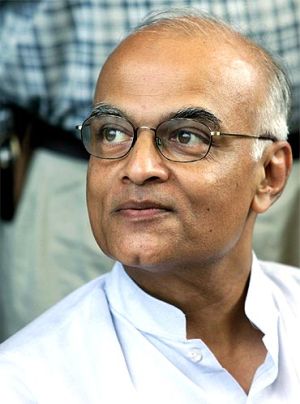
Do you think India is defensive?
No, in the past, we were not. I don't know what we are doing now. I cannot speak for these six years.
Before that, in fact from (then Indian Army chief) General (Krishnaswamy) Sundarji's time, from the mid 1980s, it has been quite clear that both of us have the capacity to embarrass each other.
After all, you can't guard every inch of such a long border, you can't have a man standing on every inch of it, so what do you do? You create mutual deterrents to embarrass each other.
And 1988 onwards, that deterrent, that balance on the border, has actually worked.
The worry now is that over the last few years, we have seen an escalating series of incidents.
After all, the Depsang valley intrusion started in 2013. Chumar in September 2014, when around 1,000 PLA soldiers intruded. And they stayed on longer, longer than in Depsang.
Then you've got Doklam which was even bigger. It lasted 72 days before finally negotiating a withdrawal. Now you have incidents at several places at the same time.
So clearly, either deterrence is not working the way it used to work or the Chinese have chosen to change their behaviour.
I have absolute confidence that the Indian Army can deal with this, that's not the problem.
The question is how do you then deal with it politically because this is more than just a military problem, this is diplomatic, political, it's a much broader challenge.
And that, I think, is something we need to have a proper discussion in India.
But Mr Menon, I don't recall any such counter-incident which has created embarrassment in Beijing or in the Chinese people the way Indians are experiencing today.
This is why I say this is different from the past. After all, what happened in the past? We did manage to get them to withdraw.

Yes, but China has been proactive. India has never been.
Do you know what happened, then? You don't know what happened.
Meaning, the Indian media doesn't know?
Nobody does. I mean these things are negotiated so that we restore peace, our goal has always been to restore the status quo ante. Before. Right? And we have so far succeeded in doing so, until Doklam.
In Doklam, we didn't agree on the end points and therefore the Chinese are in occupation of the rest of the plateau.
Do you still think, when you look back, that from 1993 to now, India's policy to strive for the status quo was good enough?
I don't think we were striving for the status quo, in fact we made it quite clear from day one, that the status quo is not an acceptable solution and it is not acceptable for us.
We are maintaining the status quo while we negotiate the boundary which we don't think should be the status quo. We have said that. The Chinese also have said that.
In fact, the Chinese excuse for not exchanging maps at the LAC is that it would freeze the status quo and make it the boundary. They don't want that. We don't want that either.
So, as you said to me before, a political solution is needed.
I think there is no other way of solving it except politically. Ultimately, there has to be a political decision by both countries simultaneously. Now, that is the problem.
Because when one side thinks the solution is set, the other side might not.
But let's see. Today we have more immediate problems at the border to deal with.
Feature Production: Rajesh Alva/Rediff.com
'Why has the peace been kept?'
'Basically because there is a balance.'
'Maybe they think that balance has changed.'
'If that is the cause, then I think what we have done, matching their build-up, etc, it is giving a good account of ourselves in the face-offs.'

"They have come to the conclusion that our relationship with the US has now reached a whole new stage where we are no longer neutral vis a vis the China-US thing and therefore, they want to try and take some counter measures," Shivshankar Menon, former national security adviser, former foreign secretary and former Indian ambassador to China, tells Rediff.com Senior Contributor Sheela Bhatt in the third part of an exclusive and eloquent interview.
Prime Minister Modi's talks with Xi Jinping at various venues these last six years have not yielded results.
You know, personal relations are not politics.
You are dealing here basically with a 4,000-year-old bureaucracy! And President Xi Jinping is the leader of that bureaucracy.
I don't think any of us ever thought that charm between heads of State, heads of government especially can get results when we have a complicated relationship which has been deteriorating in the last few years.
Yes, it is important that they meet, that they try and talk these issues out.
But what worries me is that they didn't manage to produce a new strategic framework for the relationship what we had done in 1988 during the Rajiv Gandhi visit when we had a basic agreement and that lasted, that kept the peace for over 30 years.
But I think the problem now is that both countries have changed, the situation has changed, and therefore we need a new understanding, a new strategic framework, but this is not the way to reach it.
Now, relations are so tense, when you have had deaths on the border for the first time since 1975, when actually emotions are very high, so it seems to me we are actually in a much more difficult position, a dangerous position in the relationship than we have been for a very long time.
Do you think Parliament's 1993 resolution that asserts India's claim on all of Jammu and Kashmir including the areas currently under Pakistan occupation is a speed-breaker to take a political decision then and now?
No, I don't think so.
I don't see that as a problem at all actually because ultimately we have the ability under law -- and the Supreme Court has upheld this to make adjustments -- not to seed Indian territory, but to make adjustments and the standard against which that is done.
As it was done with Bangladesh?
No, it is the map that is attached to the Constitution of India in 1950 when it was adopted.
And that map, if you look at it, gives you a certain amount of leeway.
So I don't think there is a legal problem there. But there is a question of political will.
After all, this is a big ask of any political leader, that you are going to tell us to change the way we learnt in school to draw the map of India, which we can all draw. We learned as children.
But are we going to change that? For any political leader, that's a big decision to take, and I'm not saying just for an Indian leader.
It is a big decision for a Chinese leader and certainly for leaders who base their legitimacy on nationalism, on pride, I think, it becomes a more difficult decision.
At the Special Representatives talks on border settlement that you were part of, was the Galwan Valley a hotly debated issue?
No.
Not even Pangong Tso Lake?
Pangong is a different issue, but Galwan has not been an area between India and China where there were differences of perception on where the LAC (Line of Actual Control) was until now.
The Chinese have now opened it up as a dispute.
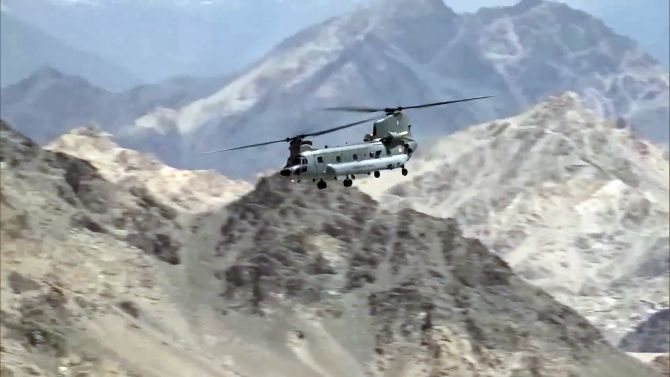
Do you think this stand-off occurred because of the dilution of Article 370? During a Parliamentary debate, India reiterated its claim on Aksai Chin and Pakistan occupied Kashmir?
My personal opinion, no. Because if it were, the Chinese would say so.
Have you heard the Chinese mention it once? Nothing. None of their statements states it.
Their ministry of defence, foreign office, political leaders, nobody has ever said that.
They made a proforma response when it happened. iIn August-September, they raised it at the UN security council to embarrass you and to help their client, Pakistan, but this is not a trigger for this kind of action, not at all.
Don't forget, you and I don't know what the Chinese are saying in the negotiations and that is very important because that will tell you what they are actually about, what they want out of this.
But I don't see how the change in the status of Ladakh, making it a Union Territory impacted. This is not the answer to that clearly.
Are China watchers in India failing to read China?
I do want to say in defence of India's China scholars and experts that on all the big issues, whether it was the Sino-Soviet split, the Cultural Revolution, the end of the Cold War and how China would react, what China would do on our boundary, all these things, we have been consistently right.
We have predicted every single Chinese leader who has risen to the top and invited him to India before he rose to the top.
If you look at the previous leaders of China, they have all been here long before -- whether it was Li Peng all the way to Xi Jinping.
So, please don't question India's China watching skills. What governments do is different from what we analyse.
Governments have their own reason and their own calculus to follow.
We have understanding how the process works in China, what China as a State is likely to do, where it is likely to go. I don't think we have a bad record at all.
We understood Sino-Soviet ties long before the Americans were willing to believe it.
And I can go on with instances over the last 50 years where Indians's China watching has actually been better than most.
And here I don't mean only government, I mean the whole China watching community, which is not very big, by the way.
Do you think the Ladakh stand-off is a small move in China's larger strategic game? Is it a part of a new world order that China wants to create?
I think it is part of a general shift in Chinese behaviour of a much more assertive China, a China that is pushing forward.
My own personal understanding is that this comes from the domestic stress that China is under.
Not only because of covid, but because of their deteriorating relationship with the US, which now seems to be structural. It eems like that contention will continue for some time with the diminishing prospects because of the world economy.
So, that China dream, this idea that China would be a developed country, will take centre-stage, and the various stages that they have spoken of, I think, all that is in question now, to be much more assertive on their periphery, with all of us.
With Japan, with Hong Kong, with Taiwan, with Vietnam, with others in the South China Sea, and with us.
So, for me, that is probably a better explanation than to find individual acts of omission or commission that India or somebody else has done.
I think it is more part of internal dynamics.
If you think of the 1962 war, one reason that the Chinese went to war against us, launched that war was because there were division within the (Chinese) leadership, it was part of Mao's comeback to power.
And, frankly, it seems to me that this is a similar moment in terms of tensions within China and we are probably seeing the external manifestations of that.
China's risk-taking propensity actually goes up in terms of internal trouble and crisis.

Is China in any way reacting to Prime Minister Modi's politics, ideology, style?
You know, I wouldn't personalise this relationship.
There are two things that could have happened, but, as I said, till you know exactly what is being said in the negotiation, I mean the Chinese are certainly not explaining why they are doing this today.
We are still in the middle of it, don't forget. But there are two things that could explain it.
One is, that they have come to the conclusion that our relationship with the US has now reached a whole new stage where we are no longer neutral vis a vis the China-US thing and therefore, they want to try and take some counter measures.
Now, in that case, that's not very sensible policy because this will only put our backs up and make us work.
China wants India to keep its strategic autonomy. Is it?
No, they want you to keep your distance from the US.
The autonomy? No. They would rather want that you did what they (China) want. That's one explanation.
The other more worrying explanation is that they think, you know there has been an effective balance of power on the border which has kept the peace.
After all, why has the peace been kept? Not only because of other distractions or because of goodwill, but basically because there is a balance.
Both can embarrass each other along this line (LAC ). Maybe they think that balance has changed. Maybe.
People can make mistakes. People can miscalculate.
Now let's see, if that is the cause, then I think what we have done, matching their build- up, etc, it is giving a good account of ourselves by all accounts in the face-offs.
Let us see, maybe that will lead them to reconsider what they are doing, but it is going to be a hard take, today we cannot say.
But these are, for me, the two possibilities that we need to look at.
Feature Production: Aslam Hunani/Rediff.com
'We should not worry too much about Indian capabilities, both military and otherwise.'
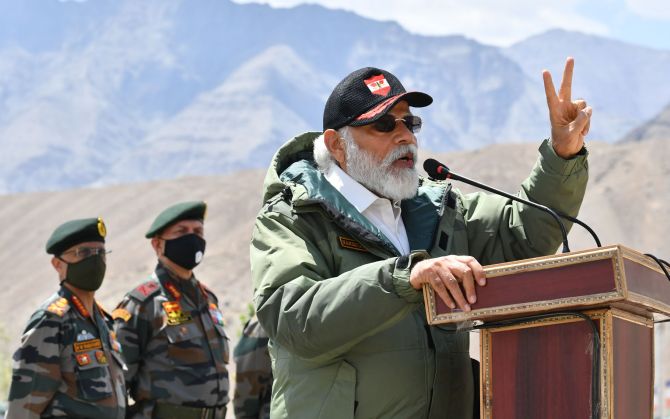
"We have the knowledge, the wisdom, the capacity to think this through and deal with it, if we put our minds to it," Shivshankar Menon, former national security adviser, former foreign secretary and former Indian ambassador to China, tells Rediff.com Senior Contributor Sheela Bhatt in the concluding segment of an exclusive and eloquent four-part interview.
So, what is the road ahead?
I can't say. We don't know what China is demanding, we don't know what the Government of India has said, I mean sadly, we don't know what our own government has said to the Chinese.
You hear talk of disengagement, of buffer zones. None of these frankly suggest anything. These are very different from restoring the status quo from what was before.
And buffer zones, disengagement from where?
From our side of the land?
Their side of the land? Both sides?
How much?
Nothing is very clear right now so I'd be very careful before jumping to conclusions.
What can we do to counter China right now?
First, we have to deal with the situation on the border.
Everything else follows after that.
Once you know about the situation on the border, you then come to broader conclusions about the relationship going forward.
Why has China done this? Has she written off the relationship with India? I don't think so. Not from what they are saying.
So, clearly they want other parts of the relationship.
You hear calls of boycott, for instance, of Chinese goods in India. There is an emotional reaction which won't solve the border problem.
I don't think the Chinese quite realise how strongly Indian people feel.
They are not used to the way we function.
An open democratic society like ours works differently. I don't think they quite appreciate the influence this has on China policy.
Is this an occasion in Indian history where India's sovereignty and territorial integrity is at stake?
We haven't come to that yet.
We have been in much more serious situations before, earlier in our history as a Republic. We have been in much more serious situations.
But depending on how we handle this and how we respond as a country, I think this could go either way.
Today, I have an open mind on where this is going. That's why I am worried.
It can end well, it can end badly, but for me, I worry because there is lack of clarity and this has been going on, don't forget since April.
But by now we should have a much clearer idea of where we are going.
Is China aiming to take this tension to the next level?
You have to ask the Chinese. We have to be prepared for everything.
Meaning, prepared for war also?
No, we have to be prepared for China trying to take it to the next level, but then we can handle that.
I don't think we should worry too much about Indian capabilities, both military and otherwise.
We have the knowledge, the wisdom, the capacity to think this through and deal with it, if we put our minds to it.
Is America the elephant in the room?
The Chinese have achieved one thing and that is certainly to make relations with America very popular in India.
So, I think the Americans owe them a debt.
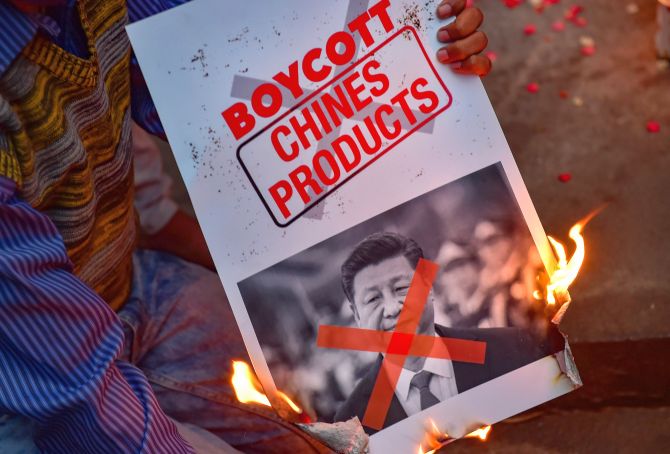
US Secretary of State Mike Pompeo says China is a bigger threat than terrorism...
Well, that's what US national security strategy has said. That rivalry is the real threat. They have said so since December 2013.
But it seems to me that ultimately we will have to handle the situation on the border ourselves. On the border itself, the military aspects, that is something which we will have to.
The rest we'll work with our friends and they will help to strengthen us, they will help us to deal with the international consequences. All that we will work with all our friends, we will work with the US who is a partner, a very close strategic partner.
We'll work with Japan, we'll work with all the other friends that we have.

When the LAC is in question, why is only China able to give India pain?
You ask the Chinese. They'll tell you the opposite.
See where you have a difference in perception in the LAC, you might think what you are doing is harmless, but the Chinese will say, 'Oh he's intruding'.
Right? So if you ask the Chinese, it's a mirror image of what you are saying from the Indian point of view that why do the Chinese do all this, what is this, why do they get away with all this?
The Chinese will say exactly the same about you.
They will say why are the Indian intruding regularly? Why are they sitting on our territory? And if you read what they say, they say it regularly.
You have to accept the basic fact that for 40 years we managed a disputed, un-demarcated, undefined border which remained a peaceful region between us.
That has been broken for the first time in 45 years.
That is serious. That is why this is serious and different from the times before.
China blamed Nehru for his forward policy for the 1962 War. That is an excuse they keep giving year after year, but this time there was no provocation particularly for the Galwan Valley.
No State admits that it was wrong.
Right? And that is too much to expect from a government.
But the fact is, they did attack in '62, and this time, they did attack our personnel.
Every version that we have says so. So, for me, that's not the issue here.
The question is how do the two countries deal with the situation and go forward. And that, frankly, we don't know, yet.
I'm sure India can deal with this. That I'm confident of.
Feature Production: Aslam Hunani/Rediff.com